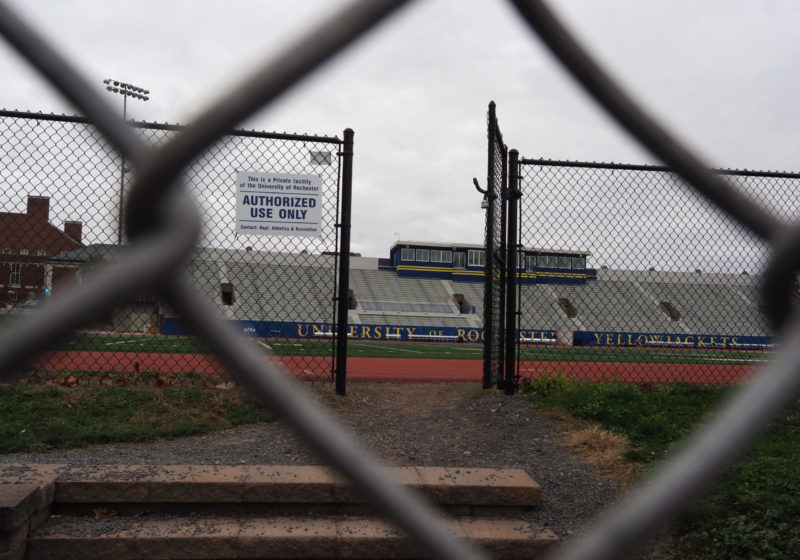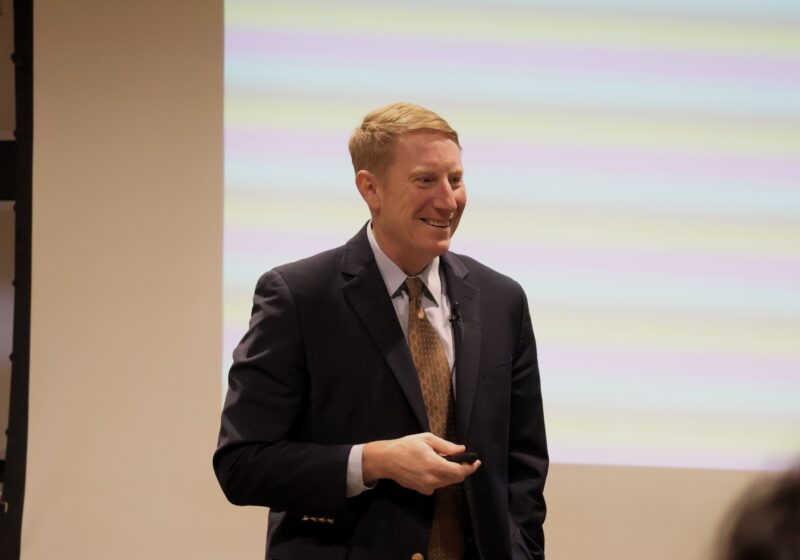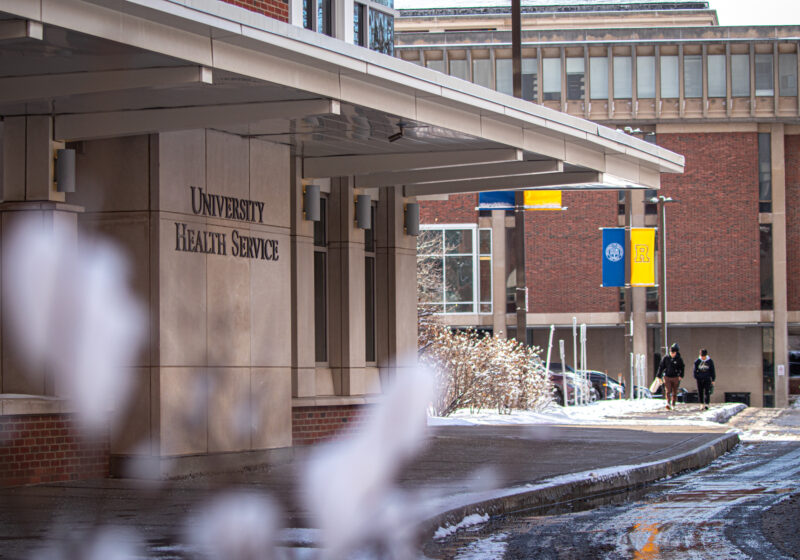I recently saw a post on Overheard accusing a varsity sports team of not following proper COVID-19 safety guidelines during a practice. A comment questioned why athletes were even still playing, what with their seasons being cancelled.
As a varsity athlete whose season has been cancelled, I haven’t been able to stop thinking about that comment and would like to respectfully provide my point of view.
This isn’t the main point, but I think it provides some important context to my personal opinion. Here goes: Over the summer, I suffered a pretty serious injury requiring surgery. My intense physical pain couldn’t hold a candle to the mental impact of going from being very active to struggling to get around my house.
There were many points where I questioned whether I’d be able to even continue recreational exercise, let alone play my sport, ever again. Thanks to a great surgeon from my hometown, a UR physical therapist, and the UR athletic training staff, I’ve made a lot of progress post-op.
Don’t get me wrong; it isn’t easy. There are good days and bad days, and on the bad days it’s easy to let the fear of being unable to return to my normal level of fitness and mobility creep in.
So back to the question: Why are athletes still playing?
Well, that’s a great question. I’m a senior, I’ve had an injury requiring surgery, and my season has been cancelled. Like many UR seniors, I’m taking a full course load and am also applying to grad programs. I have just about every reason to not commit the time and effort to playing a varsity sport.
But here’s the thing: I genuinely love playing.
UR is a Division III school. No one here is getting financial compensation for playing a varsity sport. We’re all here because we genuinely love the game. This semester has been hard on everyone, myself included. The two or three one-hour practices a week that I have with my team have been one of the few bright spots of this fall semester, and have helped me pull through mentally strenuous times.
I can’t put into words the joy I feel when I’m on the field, knowing that just months ago I was laying on my couch in pain from just walking up and down my driveway for five minutes, certain I’d never step foot on the field again. I’m incredibly grateful for everything the University has done to make any opportunity for my team to play possible, and I know all my teammates feel the same way.
I know I can’t contribute to my program by bringing home a championship or NCAA tournament berth. But what I can do is inspire the student athletes who still have seasons ahead of them to keep up the strong work ethic, grit, and determination that’s defined our team. If I can motivate even just one athlete, the early morning practices without the reward of a true season will be 100 percent worth it.
So that’s why we play. Because this is more than a game to us. It’s what gets us through the trials that this semester — and life in general — are throwing at us. It’s because our teams are like families, and we want to leave our programs in a better place than we found them.




